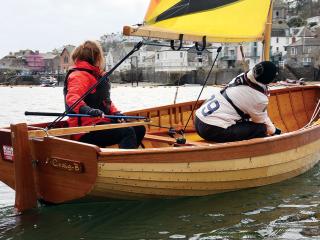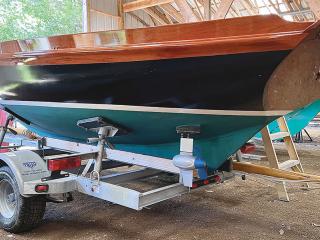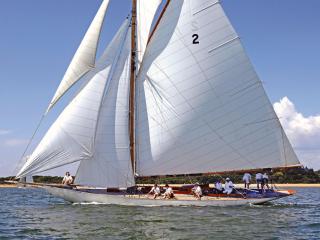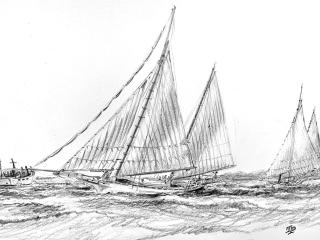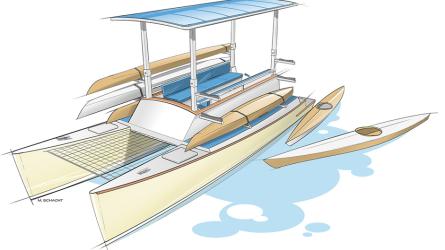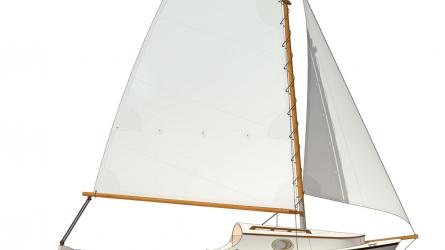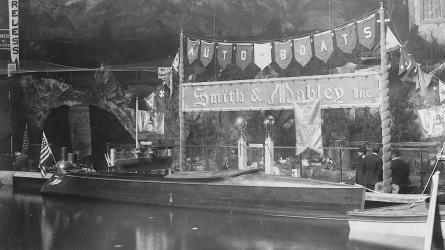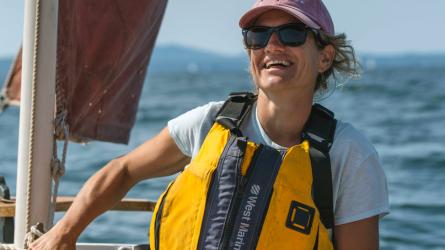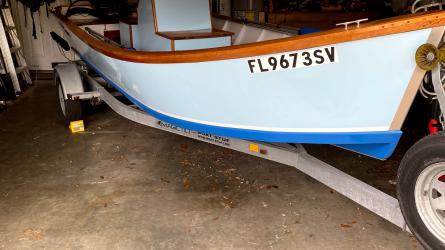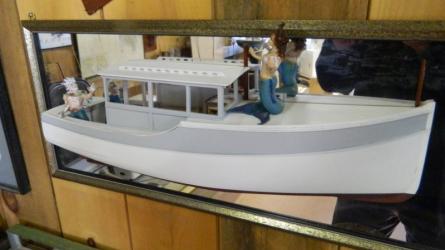September / October 2022
Born On the Bayou
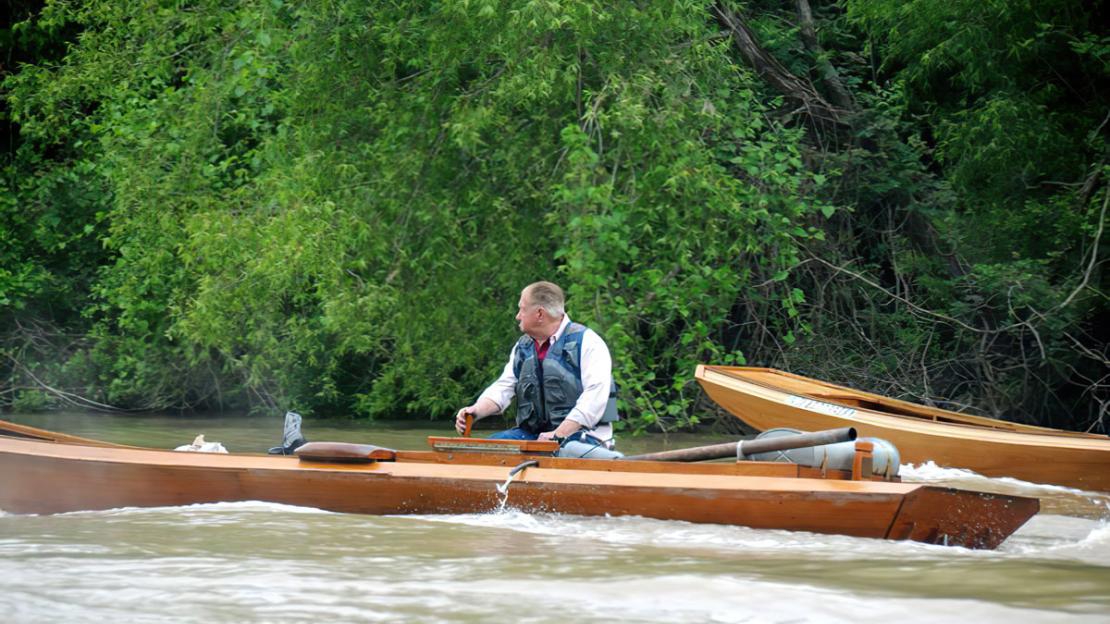
PAUL BOUY
The late Orie Mendoza steers his 20’ cypress bateau, aka “putt-putt,” on a pilgrimage to the now-abandoned Louisiana community of Bayou Chene in the Atchafalaya Basin, where he was born. A professional boatbuilder by trade, Mendoza built 39 bateaux and skiffs for putt-putt enthusiasts during his retirement years.
Our so-called “bateau” boat is not yet five minutes away from the dock before we spot our first gator. It isn’t very big–maybe four or five feet. I glimpse the crest of its head and the black, reptilian eyes glaring at me above the brown water. Then there’s the flash of a tail, and it is gone. I remember what “Mr. John” Benoit said after the fog had lifted this morning and J.B. Castagnos had launched our 20' cypress-planked bateau at Mr. John’s camp on Bayou Pidgeon.
“You don’t need to watch out for the gators. They out there, for sure.”
“And they watching you,” added Russ Bourgois in his faintly French drawl. He winked and smiled as he spoke as if to say, “Welcome to Louisiana. Laissez les bon temps rouler. Let the good times roll.”
Ça c’est bon, as they say in these parts. For sure.
J.B., Russ, and Mr. John are proud Cajuns, descendants of the distinctive French-speakers forced out of Atlantic Canada who settled the coastal swamplands of Louisiana in the mid-18th century. And, as I am discovering this morning, their traditional watercraft are just as colorful as their speech, their foot-stomping accordion music, their swamps, and their bayous. The putt-putt beat of the antique gasoline engine that drives J.B.’s bateau sets a cadence and triggers for me the melody and lyrics of the knee-slapping Cajun anthem “Jambalaya” by Hank Williams Sr. I heard folks singing it at a party, a so-called “crawfish boil” yesterday.
Jambalaya, crawfish pie, filé gumbo . . .Son of a gun, we’ll have big fun on the bayou.
There are five other bateaux putt-putting along in our wake on this over-ripe March morning. J.B. is leading the flotilla into a watery and shadow-filled landscape that the poet Henry Wadsworth Longfellow called “the forest primeval” in his 19th-century epic “Evangeline.” We are in the vast Atchafalaya River Basin of southern Louisiana. It has been mythologized as the haunt of pirates such as Jean Lafitte, smugglers, ghost towns, hermits, voodoo, venomous snakes, and gators. But today it’s more commonly called simply “Cajun Country.”
To read the rest of this article:
Click the button below to log into your Digital Issue Access account.
No digital access? Subscribe or upgrade to a WoodenBoat Digital Subscription and finish reading this article as well as every article we have published for the past 50-years.
ACCESS TO EXPERIENCE
2-for-1 Print & Digital Subscription Offer
For this holiday season, WoodenBoat is offering our best buy one, get one deal ever. Subscribe with a print & digital subscription for $42.95, and we’ll give you a FREE GIFT SUBSCRIPTION to share with someone special.
1 YEAR SUBSCRIPTION (6 ISSUES)
PLUS ACCESS TO MORE THAN 300 DIGITAL BACK ISSUES
PRINT+DIGITAL $42.95
Subscribe
To read articles from previous issues, you can purchase the issue at The WoodenBoat Store link below.
 Purchase this issue from
Purchase this issue from
